Mike Balog, Zonoff CTO Fills in for Bob Cooper

…
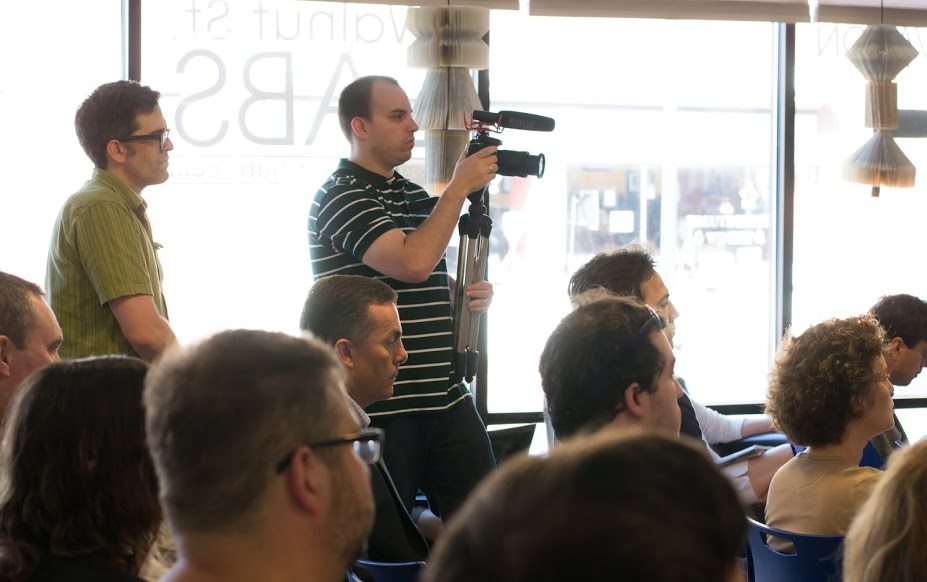
…
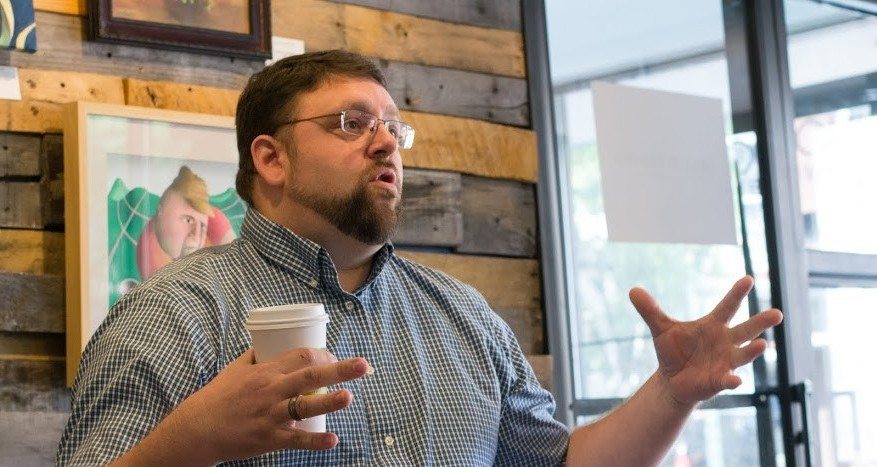
…
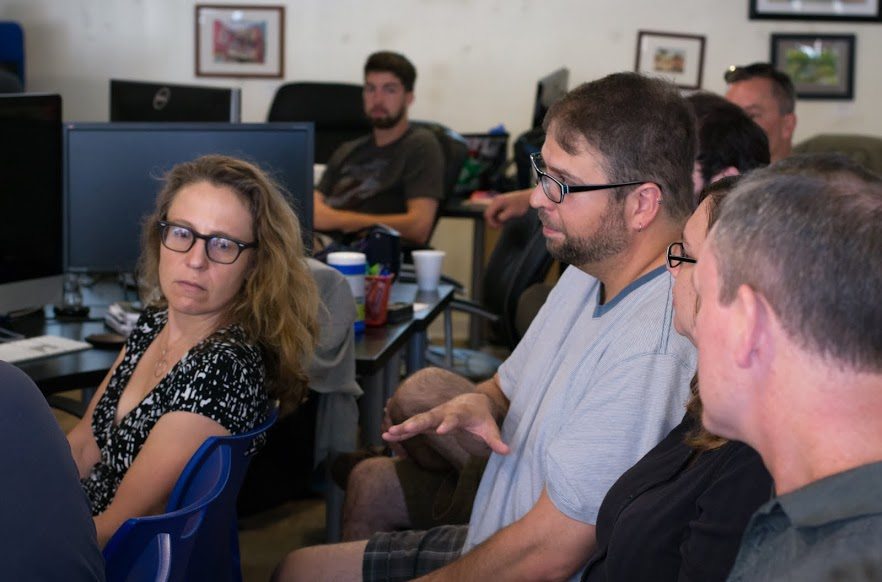
…
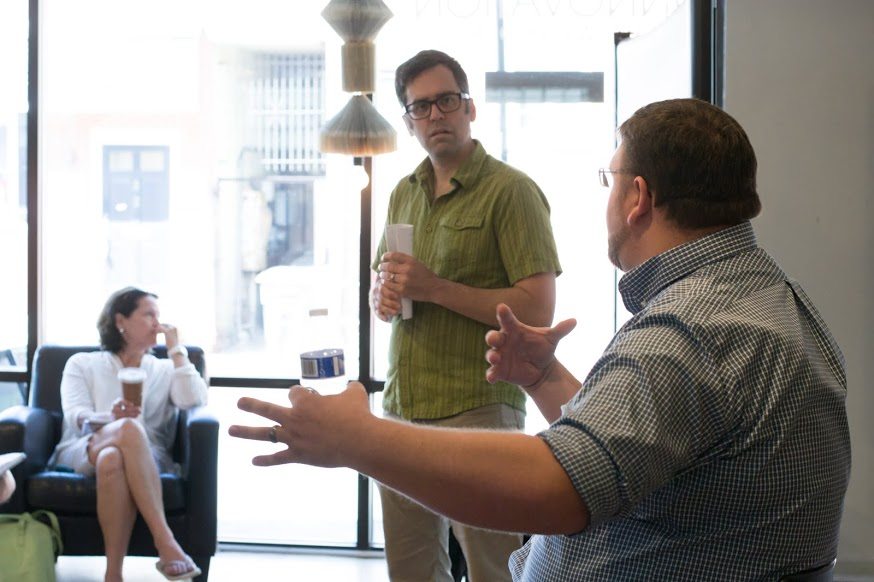
…
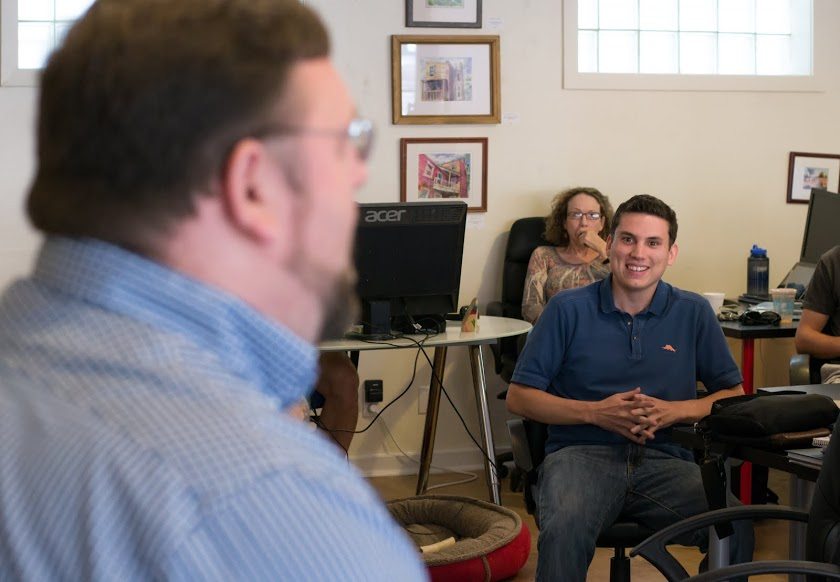
…

…

…
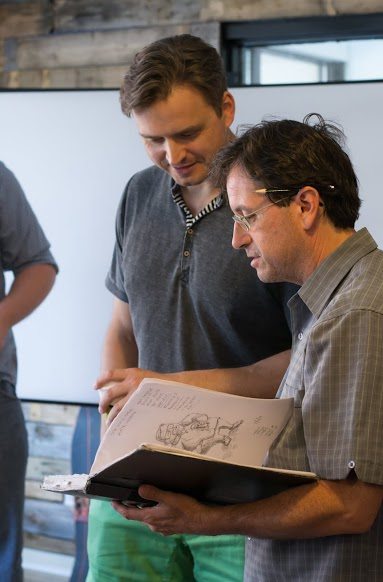
…

…

…

…

…

…

…

…

…

…
“Technical.ly Philly approached me when they heard I was looking for a job. And I didn’t know anything about the Philly tech scene. I didn’t actually even really know that existed. So, I was just thrown right into it”
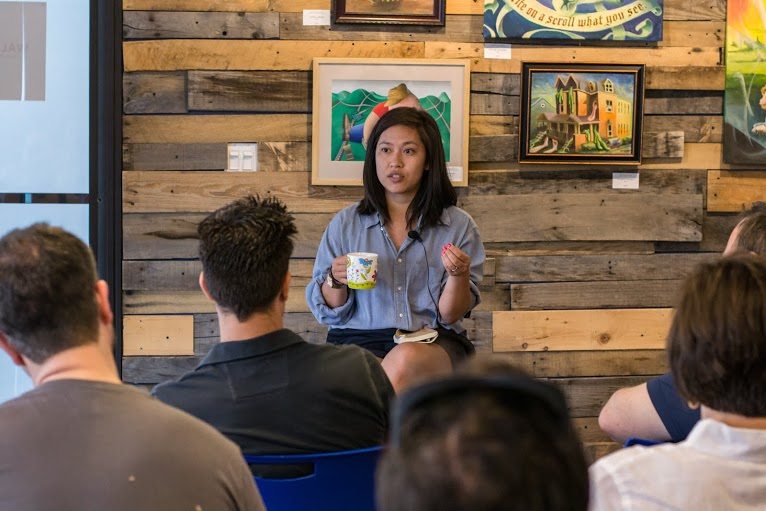
“We (at Technically Philly) cover the Philly tech scene very very closely, the city and the greater Philly tech scene. Really closely. It’s not like, say the Inquirer business section. They’ll do a story about a company only when that company is going public or when something really big is happening. We’ll cover it from the beginning, and every stage in between.”

“When Walnut St. Labs opened up I wrote a story about it. I asked him (Chris Dima) to keep me posted throughout the writing of the story. I wanted to know everything that happened after that. I wanted to know if they got a grant, or if a new company was here, and what their upcoming events were. And its that sort of community-based reporting, which we really pride ourselves on.”

“What I really care about is meeting with people. Meeting people that work in startups, meeting people that work in government, or meeting people who teach STEM. Its all about the people behind these business. Its cool and its impressive if your making a lot of money or raising venture funding, but what I find really interesting about it is that human factor. Its not just, ‘look at what these smart people are doing, in terms of money!’, its also about personality, that human side of things.”
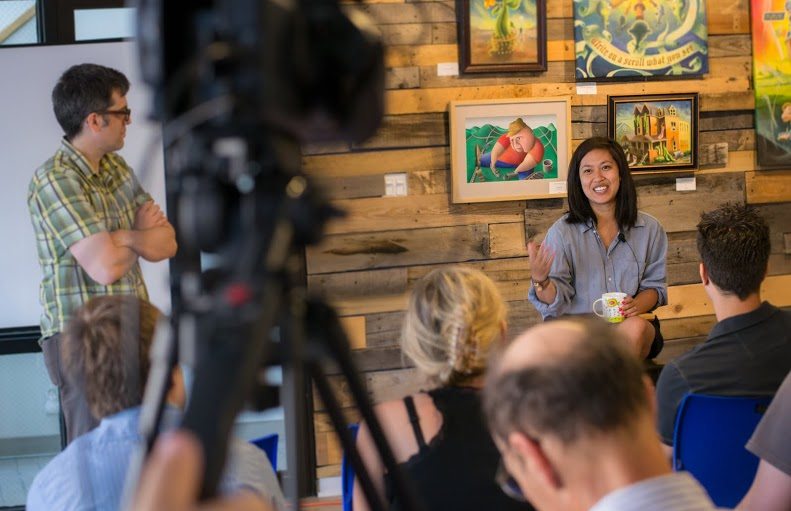
“We are so in the community. I see people at events and we talk all the time, and we have a good relationship with people, which can sometimes make it hard to ask the tougher questions. So, when I hear about a startup laying off a bunch of its employees, it can be really difficult to ask the CEO, ‘What’s up?, What’s going on here?’… That’s been one of my struggles over the past two years, finding a good balance.”

“Another big lesson I learned at this job is about not being afraid to look stupid. I was talking to one of the guys in SEPTA’s tech department … and I had to admit to him that I had know idea what he was talking about and he had to explain all of it to me. So, we talked for two hours and he drew me a diagram. And yet, it was one of the most fun stories I did, because he explained it to me and I learned it. I could explain it to people in a way that was actually useful to other people because this was something that city government was doing to make their services better, through the use technology”
“And, it took a certain amount of lowering my pride to admit and say ‘I don’t know what your talking about. Can you explain it to me?’. Its been a really big learning experience for me to accept that I might not know a lot, but can get it and people will explain it me. People will explain it to you, to anyone, if you just ask! I think people can be really generous with their knowledge.”
“The last thing that I’ve been thinking about a lot is that its not, I don’t know how to say this, but its not about the glory. Its hard to say that when a bunch of you guys are here to see me speak. Or when Im at a Philly Tech Week event and people are coming up to me and saying that they recognize my photo. I always feel really special…”

“And I think a lot of journalists have this idea that you wanna be that Woodward and Bernstein, you have to be muckraking and holding people accountable, which I think we do, but we also do a lot of other stuff. I looked to that (idea) and I thought I had to write all these controversial stories in order to make in an impact… But I write small pieces of new called Startup Roundups that are equally impactful. I get so many emails from people that the Startup Roundups is really important to them because it keeps them up to date and knowledge.”
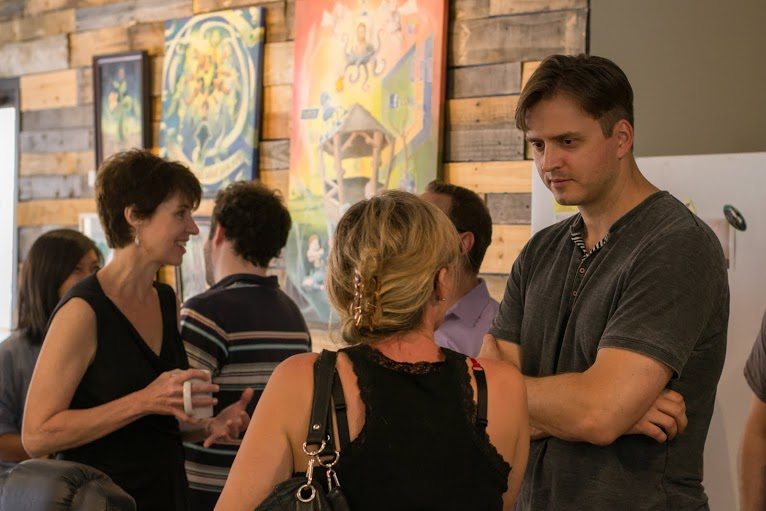
“I changed the way i look at what a good journalist is. Its not just someone who can take down the president. It can be someone who follows smallest movements of the community and if that means something to people, and it seems like it does (in the Philly area), then it can be just as powerful and impactful.”

I saw a friend at a festival and he introduced me to another friend of his, and he said “You work at Technically? Your OUR reporter?” I don’t why, but hearing him say that really struck something in me. It reminded me, ‘Yes, I am YOUR reporter!’ That is my job, that is what I do!
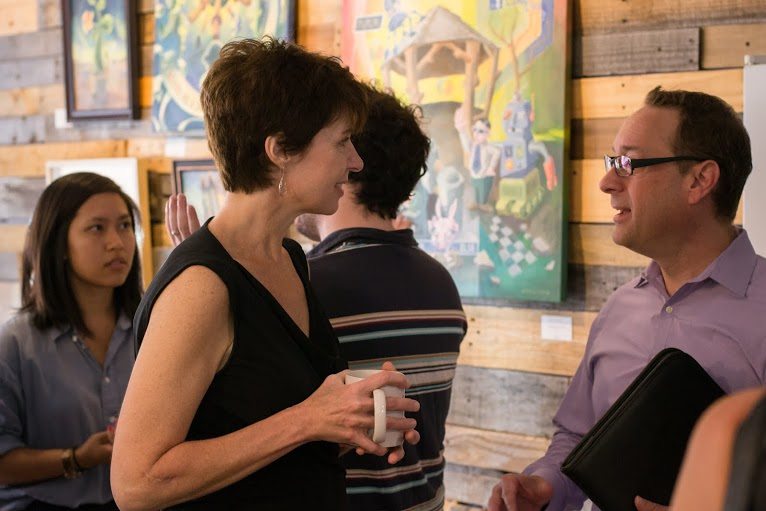

…

…

…

…

“The guys at Walnut St. Labs are viscous on Social Media”

…

…

…

…
Google is obviously a cool place to work. They don’t adhere to organizational conventions, in fact, they openly deviate from those norms in order to cultivate their own. So, What is it like to actually work at a place like google? Well, Beah worked there for five years, and from her accounts it seems like a lot of the idiosyncrasies you hear about google are true.
After working at a place known for such raw creativity and innovation, she brought her learnings from San Francisco and New York to TicketLeap. Beah was kind enough to extend these insights to Walnut St Labs, in hopes that we could continue to grow paradigmatically.

Advice on experimental approach:
“Shoot first, ask questions later. Move fast, break stuff. Take moonshots!”
“If you buy this premise at all, then its our job as startup leaders to bring that type of culture here (Walnut St. Labs), to take the not so secret sauce, to take the ingredients, and cook it everyday, eat it everyday, serve it everyday.”
“Don’t take instructions, take Goals. Which is not a terribly articulate way to say that the end point matters and one shouldn’t get caught up in the process or the steps it takes to get there.”
Anecdote:
“Ian (at google) said, ‘it’s your job to make DFP (google product) successful in the market, any questions?’. And I was kind of amazed and I scratched my head, left the room, and thought ‘Oh Shit! I have to make DPF successful in the market’. And it was a bit daunting, but is was also quite liberating, because I wasn’t hung up about executing against a task list, or running a process. I was giving my all to make this thing successful!”
Advice on leadership:
“Thing number two that I learned, and that I sorta was immersed in at google was don’t revere authority. Maybe it should be don’t revere authority too much, but probably just don’t revere authority.”
 Beah’s experience:
Beah’s experience:
“I remember my first performance review with him (pretty senior guy: Tom), he gave me some good feedback, and we got the areas of development, the old AFD’s. And I think my only real, substantial area for development was he said I needed to push back more, I needed to argue harder, I needed to disagree with him more. Maybe its seems like an obvious thing that you should have a point of view and disagree with people regardless of somebody’s title… but its a easy thing to forget when your sitting in a room with somebody who could be you boss’s boss’s boss.”
“You might think that you should just prop up their ego, but if they’re a good manager, that not what they want! They dont need their ego propped up, they need insights, they need contrary opinions. I thought it was pretty cool that Tom was not just saying it, he was codifying it in my performance review!”
 On Work Relationships:
On Work Relationships:
“Employee relationships, with the company, with each other shouldn’t feel transactional. There’s this guy Dan Ariely… wrote a book called predictably irrational about humans doing predictably irrational things, so like programmatic irrationality.”
Example from Predictably Irrational
“Humans are more likely to do work, more likely to do favors out of some kind of social contract then they are when paid, its bit more complicated than that, it depends on the thing and the amount being paid. But, he points out that there are two worlds … Market Norms and Social Norms.”
“These worlds of Market Norms and Social Norms cant exist together. You have to really be bought in and trust that you are living in a world of social norms. And Its hard for employers to do this because that basic premise is that you pay someone for their work. I don’t feel like anyone does it better than google. you really feel like your in a world of social norms. I felt trusted. I felt valued. Everything is honor system, sick days are honor system and people didn’t abuse it.”
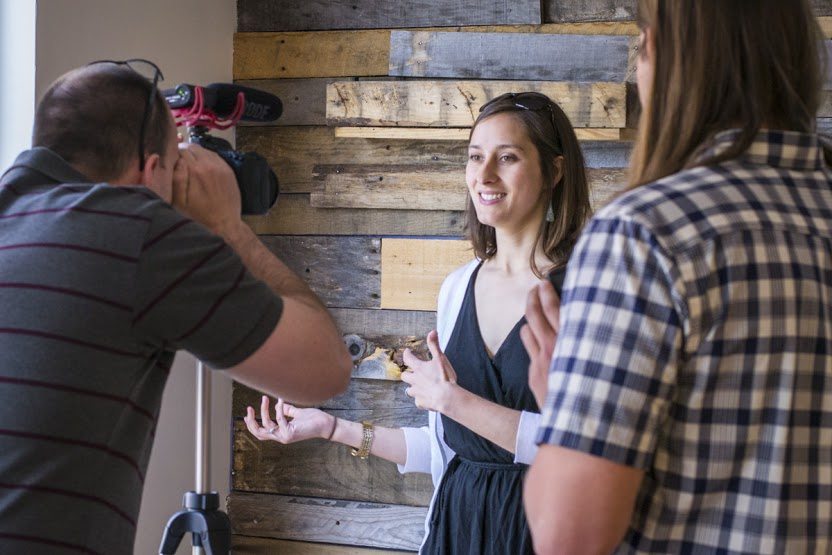 On Gran Dios Ideas:
On Gran Dios Ideas:
“No Big idea should ever be written off.”
On growth: Big ideas @google: “At the time that it (idea of the self-driving car) was announced , it felt like a late April Fool’s joke or something. But now, self-driving cars are starting to feel normal now, a couple years later! But it took someone in a room ten years before it could feel normal to say ‘what if we could made these things that could actually drive themselves?’… At google it wasn’t a culture where you laughed at these ideas.(Instead) you said “yeah yeah, maybe we could do it this way!”
 “We would get these emails talking about these crazy ideas like once a month, you can know that people are working on self -driving cars but to have it thrust on you culturally is valuable. It reminds people to get excited about big tricky ideas”
“We would get these emails talking about these crazy ideas like once a month, you can know that people are working on self -driving cars but to have it thrust on you culturally is valuable. It reminds people to get excited about big tricky ideas”
If your not pushing back, push forward and push forward with all your might.
“Either your arguing or your pulling as hard as you can in the direction we are pulling. It was well articulated by Larry (@google) and its huge because startups are low probability ventures. Its very very hard to succeed. Whether you have x smart brains in your company, whether its 3 people or 20,000 people, in the case of google … you need all of those brains pulling in the same direction.”
“You cant afford to have employee to not be raising the flag if something was missed, you can have them just respecting authority and not disagreeing.I think it is often the difference between success and failure for a startup.”
Thanks for your interest. The full WSL SUMU is available on our Youtube Channel.
(Photos by Jehrin Flanik)
Weekly Startup Meetup vignette
(by Mike Luttermoser)